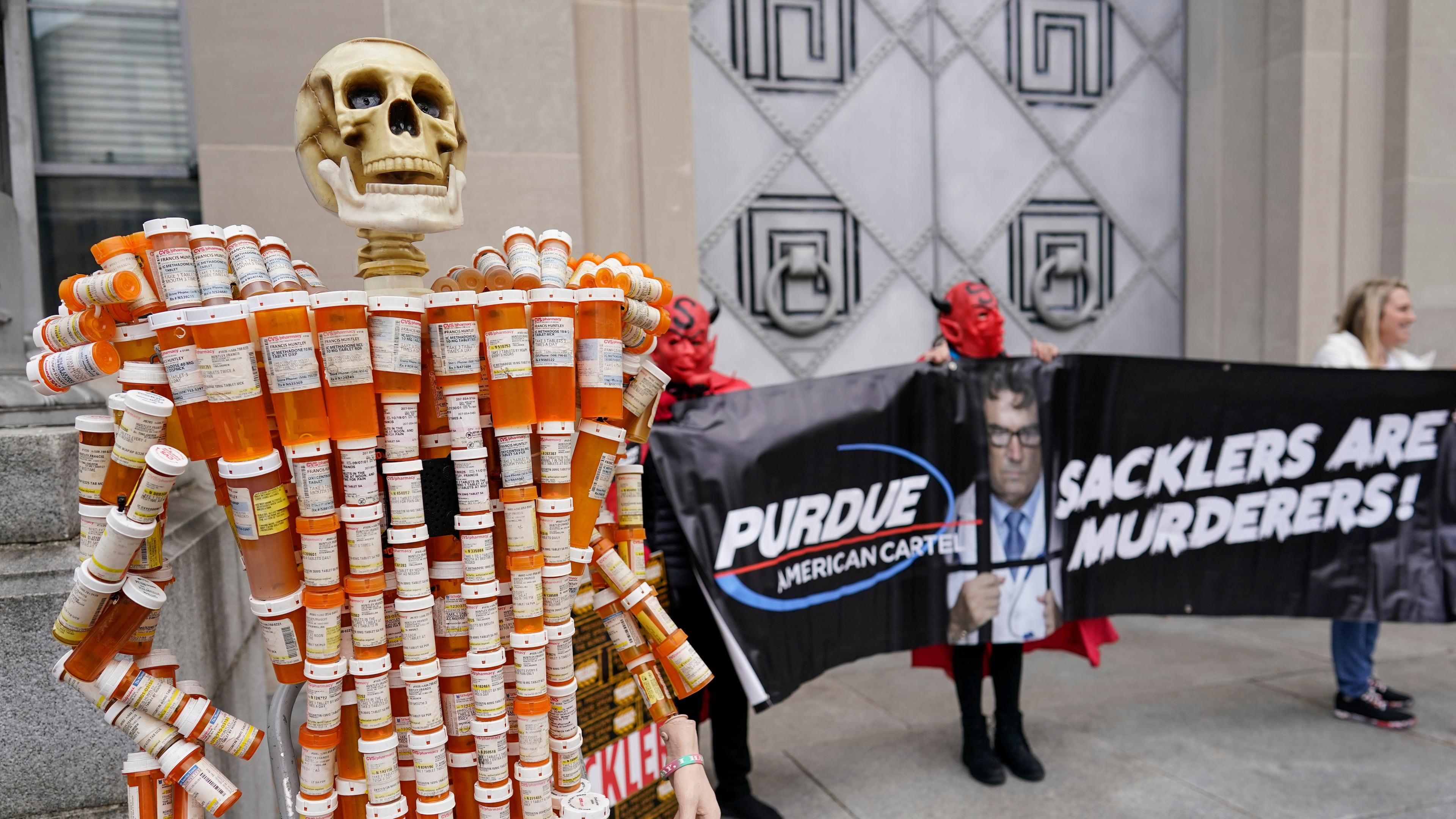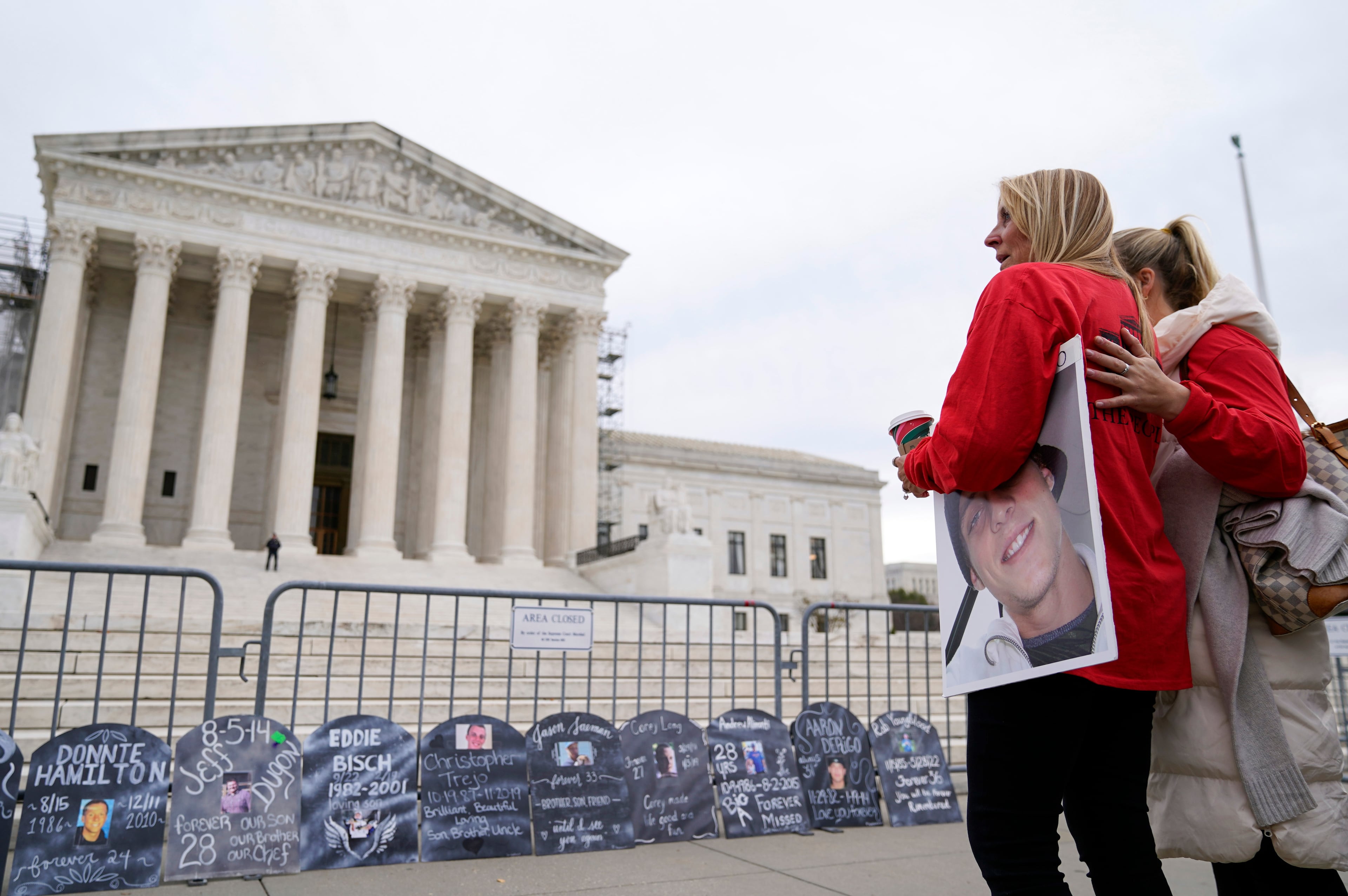Judge approves opioid settlement for Purdue Pharma and Sackler family members who own the company

A federal bankruptcy court judge on Tuesday formally approved OxyContin maker Purdue Pharma’s plan to settle thousands of lawsuits over the harms of opioids.
U.S. Bankruptcy Judge Sean Lane was set to give his reasoning Tuesday for approving the plan, which requires members of the Sackler family who own the company to contribute up to $7 billion over 15 years. Most of the money is to go to government entities to fight the opioid crisis that has been linked to 900,000 deaths in the U.S. since 1999.
A portion of the money is to be distributed next year to some people who had OxyContin prescriptions and their survivors.
The new agreement replaces one the U.S. Supreme Court rejected last year, finding it would have improperly protected members of the family against future lawsuits. Under the current agreement, entities that do not opt into the payments can still sue members of the family.
Sackler family members, who have not had direct involvement in the company for seven years, will officially give up ownership and be barred from selling opioids anywhere in the world. The company will eventually get a new name — Knoa Pharam — and be operated with a public-interest mission.
The deal, which the judge said he would accept last week, is among the largest in a series of opioid settlements brought by state and local governments against drugmakers, wholesalers and pharmacies that totaled about $50 billion.
Money will go to governments and some individuals
Sackler family members agreed to pay up to $7 billion over 15 years, providing most of the cash involved in the settlement.
The funds distributed to state, local and Native Americans is to be used mostly to address the opioid crisis, as has been the case with other opioid settlements.
About $850 million of that is to go to individual victims, including children born with opioid withdrawal.
People with addiction and survivors of those who died must prove they were prescribed OxyContin to participate. Those who do could receive payments of around $8,000 or around $16,000, depending on how long they received the drug and how many other people qualify. The money for individual victims is to be distributed next year.
Not only money is at stake
Members of the Sackler family are agreeing to give up ownership of Purdue.
For them, that won't be a major change since no family member has served on Purdue' board or received money from the company since 2018. The plan calls for Purdue to be replaced with a new company, Knoa Pharma, to be controlled by a board appointed by states and with a mission of benefiting the public.
Sackler family members are also agreeing not to have their name put on institutions in exchange for contributions — something they've done often in the past, though many institutions have cut ties with them.
The company has also agreed to make public a trove of internal documents that could shed additional light into how the company promoted and monitored opioids.
One feature that won't be repeated under this new deal that was in a previous one: forcing members of the Sackler family to hear directly from people harmed by OxyContin.
A long legal saga could be wrapping up
Purdue filed for bankruptcy protection in 2019 when it was facing thousands of opioid-related lawsuits from state and local governments and others.
A judge approved a settlement two years later. But the U.S. Supreme Court later rejected that plan because it gave members of the Sackler family protection from lawsuits over opioids even though they were not personally declaring bankruptcy.
The latest plan allows lawsuits against Sackler family members by those who don't opt into the deal.
This time, few parties objected to the settlement, although some people who represented themselves and who were addicted to opioids — or had loved ones who were — raised concerns during the three-day confirmation hearing last week.
